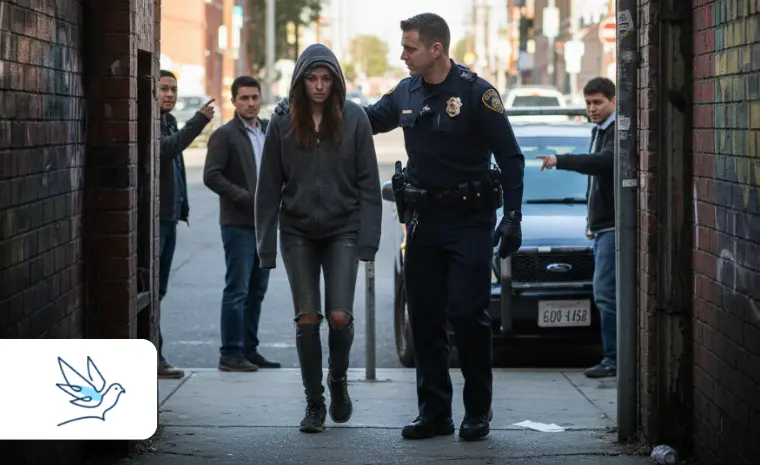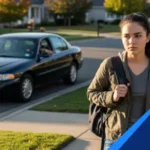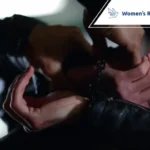Summary
California’s SB 14 marks a major step forward in combating human trafficking by classifying the trafficking of minors as a “serious felony” under the Three Strikes Law. This reform strengthens penalties, enhances survivor protections, and reinforces the state’s long-standing commitment to ending human exploitation through law, advocacy, and community action.
Table of Contents
In California, the passage of SB 14 represents a pivotal moment in the fight against human trafficking. This law redefines justice for victims—particularly minors—by imposing stricter penalties on offenders and strengthening support systems for survivors.
With human trafficking cases steadily rising across the U.S., California continues to lead nationwide efforts toward justice, prevention, and rehabilitation. Here, we’ll explore how SB 14 builds on California’s ongoing mission to safeguard victims and bring traffickers to justice.
Overview of SB 14 and Why It Matters

Senate Bill 14 classifies the human trafficking of a minor as a serious felony under the California Penal Code. This means offenders face harsher sentencing, including longer prison terms under the Three Strikes Law.
Why this matters:
- California consistently records the highest number of human trafficking cases in the U.S.
- Global data reveals a 12% rise in trafficking cases from 2016 to 2021.
- Minors remain among the most vulnerable groups, often trapped in commercial sex acts, labor trafficking, or other forms of exploitation.
By designating these crimes as serious felonies, SB 14 aims to ensure offenders are held fully accountable while reaffirming California’s zero-tolerance stance on exploitation.
How SB 14 Changes Existing Human Trafficking Laws
Before SB 14, the trafficking of minors was punishable under various provisions, but was not automatically classified as a serious felony. This created gaps in sentencing and deterrence. SB 14 closes that loophole by expanding California’s definition of “serious felony” to include human sex trafficking involving minors.
Key Legal Implications
Aspect | Before SB 14 | After SB 14 |
Crime Classification | Trafficking a minor was not defined as a “serious felony.” | Classified as a serious felony under California Penal Code §1192.7(c). |
Sentencing | Did not automatically count as a strike offense under the Three Strikes Law. | Now, a strike offense — repeat offenders face enhanced sentences, up to life imprisonment on a third strike. |
Plea Bargaining | Allowed in some trafficking cases. | Restricted — prosecutors cannot plea bargain except in limited circumstances (e.g., insufficient evidence). |
Local Cost Reimbursement | Local agencies could request state funds to cover additional prosecution expenses. | No reimbursement required — the law builds on existing statutes rather than creating a new mandate. |
These legal measures strengthen deterrence and align state law with the moral imperative of protecting children from commercial sexual exploitation and forced labor.
Protection and Empowerment for Survivors
SB 14 doesn’t only increase punishment—it amplifies support for survivors of human sex trafficking. Improving the legal recognition of the crime encourages better victim services and more robust prosecution strategies.
Survivors often face:
- Trauma linked to sexual abuse or domestic violence
- Fear due to their immigration status
- Difficulty navigating the state and federal courts or understanding their rights
To address this, organizations like California Against Slavery and local shelters in Los Angeles or San Diego have expanded trauma-informed care, crisis housing, and advocacy services.
Victims can also call the National Human Trafficking Hotline (1-888-373-7888) for confidential help or to report suspicious activity.
Role of Advocacy and Community Awareness
Laws like SB 14 gain strength through community participation. Grassroots advocacy groups, schools, and nonprofits are crucial in early detection, survivor support, and public education.
Ways the community can help:
- Learn the warning signs of labor trafficking and commercial sex acts
- Support awareness campaigns led by California Against Slavery
- Partner with local law enforcement to ensure swift case analysis and response
- Volunteer with survivor-centered organizations that provide shelter, education, and rehabilitation
Education in schools and communities continues to be a crucial barrier against trafficking—helping potential victims find assistance and allowing bystanders to identify exploitation.
How a Human Trafficking Lawyer in California Can Help
Victims and families often face a maze of legal and emotional challenges. Our skilled human trafficking lawyer in California provides legal guidance and representation to ensure survivors are heard and protected.
They can assist with:
- Filing a civil litigation claim against human traffickers
- Representing survivors in criminal case proceedings or federal court
- Seeking compensation for damages, medical bills, or emotional trauma
- Coordinating with the California Department of Justice or victim services programs
- Helping survivors navigate victim protection laws
Legal professionals ensure punitive and restorative justice, empowering survivors to reclaim their lives.
Frequently Asked Questions
What is SB 14, and when did it take effect?
SB 14 is a California law that designates the trafficking of minors as a “serious felony.” It took effect on January 1, 2024, heightening penalties for offenders and reinforcing California’s dedication to protecting vulnerable victims and holding traffickers fully accountable.
How does SB 14 affect sentencing?
Under SB 14, offenders convicted of trafficking minors face longer prison sentences and stricter penalties under California’s legal system.
What should I do if I suspect someone is being trafficked?
Call the National Human Trafficking Hotline at 1-888-373-7888 or immediately contact your local law enforcement agency.
Are survivors required to testify in court?
Not always. In many cases, evidence from investigators and witness testimony may be sufficient, though survivors may share their stories voluntarily.
How can a human trafficking lawyer in California support victims?
They provide case analysis, protect survivors’ rights, represent them in state and federal courts, and help secure justice and compensation.
Turn Awareness Into Action — Seek Justice Today
SB 14 is more than a legal reform—it’s a moral declaration that California will not tolerate exploitation. Through stronger laws, community awareness, and survivor advocacy, the state continues to push for justice and healing.
If you or someone you know has been affected by trafficking, don’t face it alone. Contact us today for a free, confidential consultation and receive compassionate legal guidance from a dedicated team that understands your rights and options.
Together, we can turn stronger laws into better futures for human trafficking survivors.






